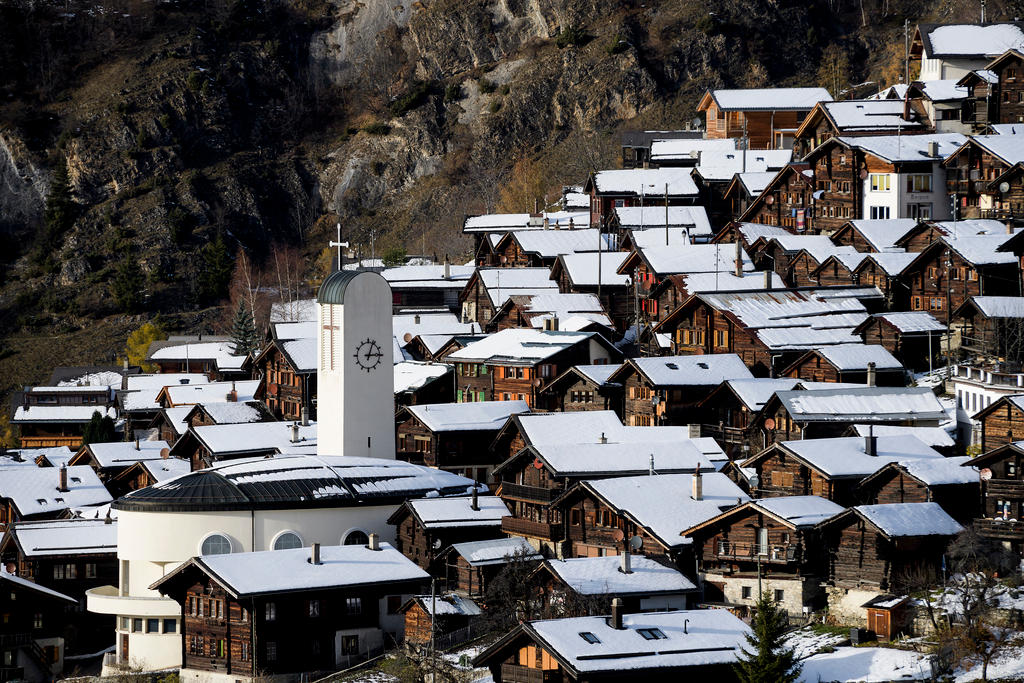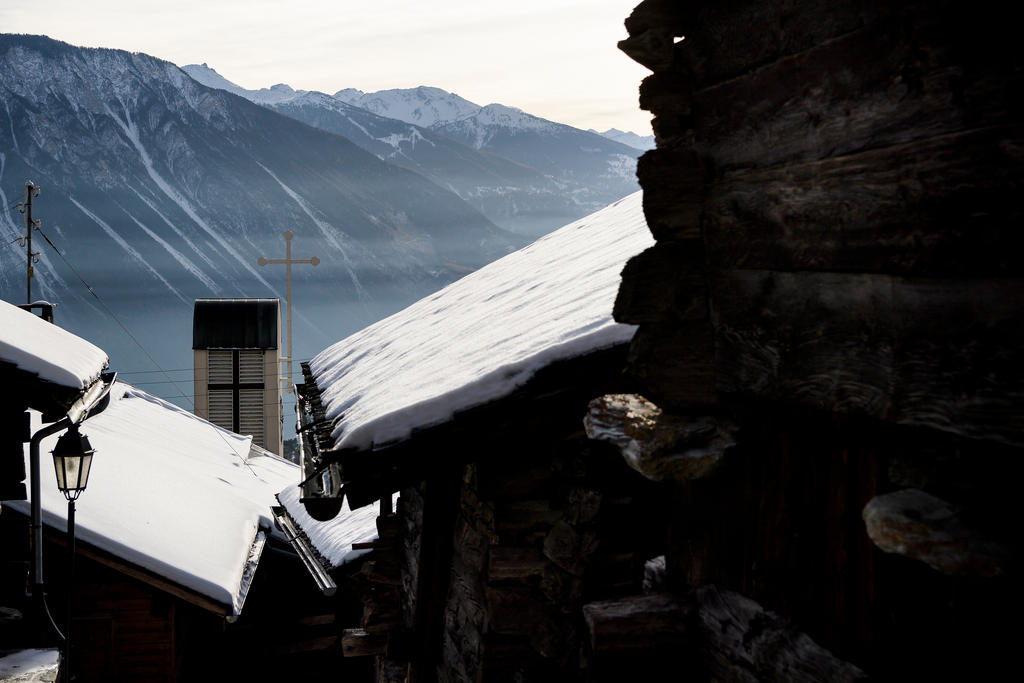
Albinen cash incentive given green light

The residents of the Alpine village of Albinen have approved plans to attract newcomers by offering them CHF25,000 ($25,400) under certain conditions. The aim is to stop rural depopulation in the area.
Some 100 people from the 240-person village voted on the initiativeExternal link on Thursday evening and it went through with 71 votes in favour and 29 against.
Clarification
The authorities of Albinen on December 4, 2017 stated External linkthat: “foreigners without a Swiss residence permit C are not entitled to receive financial support.”
Perched 1,300 metres high above the Rhone valley, AlbinenExternal link is the stereotypical Swiss alpine village. However, many of its houses are now holiday homes, and, as mayor Beat Jost told the Swiss news agency, the school has had to close because it has too few pupils. The remaining five school-age children now make the 20-minute bus ride to Leuk every day.
Yet, according to the mayor, Albinen has a lot going for it: the view is stunning, the air is pure, there is plenty of sunshine and the renowned spa of Leukerbad is just six kilometres away. Sion town and the industrial centre of Visp are only half an hour’s drive away. There is also no shortage of building land.
Clearly, though, this has not been enough to stem the exodus. And the more the village empties, the more people want to leave.
Village fights back
How to break this vicious circle? The inhabitants of Albinen came up with a simple solution: pay people to come and live in the village – a proposal that caused a stir in both the national and international media when it was revealed in November.
According to the proposal, anyone who decides to move to the village and buy, refurbish or build a home should be paid an incentive: CHF 25,000 per adult and CHF 10,000 per child.
There are conditionsExternal link, though: applicants must be below the age of 45 and commit themselves to living in Albinen for at least ten years. They will also need to invest a minimum of CHF200,000 in the property, with the financing approved by the bank. If someone moves away or sells the property within these ten years, they will have to pay back the money received from the village. Foreigners will need to have a C residents’ permitExternal link.

The cost of the scheme would be borne by a special fund into which the municipality would pay CHF100,000 francs each year. The number of places would therefore not be unlimited.
In a statement on its websiteExternal link, (in German) the village said it expected to attract five to ten families at the most in the next five years. It said that it had already received lots of interest, not least because of how the story was covered in the media. Only around 100 of these enquiries were considered serious applicants, it added.
Other strategies
There is no lack of competing schemes to attract residents, however, as rural depopulation is a widespread problem.
The mayor of Bourg-Saint-Pierre, also in the canton of Valais, said this summer that “a 10% credit will be given to new residents who build or renovate a property, for a maximum of CHF30,000”. There is no age limit, but candidates must undertake to live in the municipality for at least 20 years.
In Inden, residents enjoy a discount at the village shop, while people living in Trient receive free energy and bus passes, as well as construction and renovation grants and health insurance subsidies.
Mixed success
In Mont-Noble, it was decided to lower the price of developed building land (between CHF100 and CHF120 per square metre). Since 2011, the population has grown from 867 inhabitants to 1,064 this year.
This strategy was first used in 1993 by the municipality of Vernamiège, now part of Mont-Noble. It was soon imitated by other places, such as Salvan and Leuk.
As for Gondo, it managed to attract an IT company data centre by offering low-cost electricity and the use of refrigerated rooms in old civil protection shelters.
And in the Italian-speaking canton of Ticino, a member of the cantonal parliament proposed tax breaks for anyone deciding to live in a remote area. The measure was, however, rejected by the cantonal government this year, on the grounds that it would run counter to the principle of equality and universality of taxation.

In compliance with the JTI standards
More: SWI swissinfo.ch certified by the Journalism Trust Initiative

























You can find an overview of ongoing debates with our journalists here . Please join us!
If you want to start a conversation about a topic raised in this article or want to report factual errors, email us at english@swissinfo.ch.